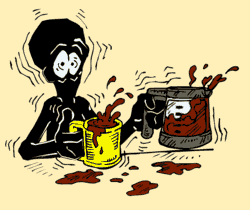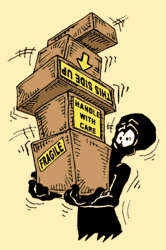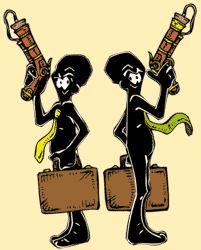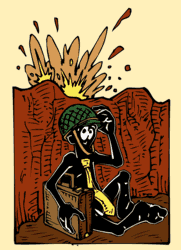 The laws of supply and demand are once again causing anxiety for African coffee farmers. The prices of coffee, as a commodity, go up or down depending on demand. When demand exceeds the available supply, coffee prices go up, but when the available supply is greater than the demand, prices fall. This year, decreased demand from Europe means lower earnings for coffee farmers in Africa.
The laws of supply and demand are once again causing anxiety for African coffee farmers. The prices of coffee, as a commodity, go up or down depending on demand. When demand exceeds the available supply, coffee prices go up, but when the available supply is greater than the demand, prices fall. This year, decreased demand from Europe means lower earnings for coffee farmers in Africa.
Prices have fallen from $320 per 50kg bag of coffee in January this year down to $140 per bag by the end of October, reflecting the drop in demand from Europe. Ugandan growers are likely to be worst affected, because the lower prices are compounded for them by the poor crops this year resulting from drought. Kenyan growers have significantly increased production, so that the lower prices are cushioned for them by the ability to sell greater quantities.
Rwandan coffee producers expect to sell 24,000 tonnes this year, up from 16,000 last year, with a small increase in earnings despite the depressed prices. Tanzania is aiming for a significant increase in its coffee production over the next few years. However, the current low prices are largely caused by a bumper crop from Brazil. If global coffee supplies continue to increase, the future trend for the price seems downward.








